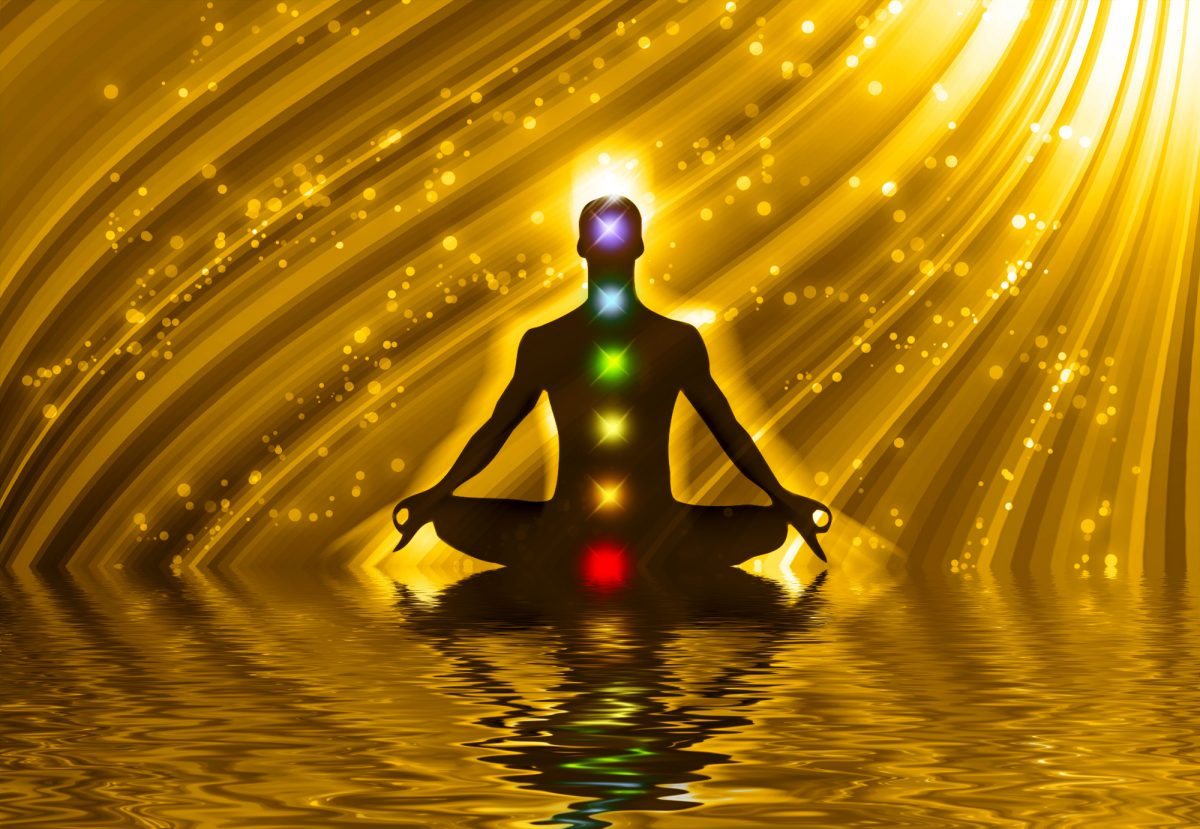It’s all about the good vibrations.
Don’t go getting your cosmic energy in a twist if not all of your friends are on board with the science of Alternative Medicine. While most physicians might feel narrowing the body down to elemental energies might be oversimplifying matters, many doctors also agree that there is a time and place for it. We take a look at some of the popular methods to try and answer the question "is it truly valuble?"
 Reiki
Reiki
Most cultures believe in a certain life-force energy that runs through the body: in Judeo-Christian cultures it’s the soul, while in the East it shows up as Prana, Qi, Chi, or in this case, the Ki. Reiki, or “universal life energy” is a healing method developed in 1922 by Japanese Buddhist monk, Mikao Usui, in which the practitioner manipulates the life-force energy flow of a patient’s body.
When we get sick our energy flow becomes blocked or sluggish, and the Reiki specialist has the ability to unblock or detox our energy, allowing the body to more effectively heal itself. While the concepts date back thousands of years, traditional Japanese Reiki uses “Reiji-ho,” or “instinct for knowing where to place your hands”, while Western Reiki uses a strict set of hand patterns for healing ailments in treatment sessions that run approx an hour long.
Some people swear by reiki for easing muscle tension, decreasing pain, improving sleep and easing nausea or anxiety, there has been no clinical testing that could satisfactorily prove Reiki actually works. Maybe it’s not so surprising that Reiki practitioners also believe that it takes multiple sessions to help cure your ails.
 Acupuncture
Acupuncture
If you have a phobia of needles this definitely isn’t the cure for you. If it’s less about the sharp and pointy and more about the pain, then surprise: acupuncture needles are actually supposed to be painless. This Chinese practice is several thousand years old where the idea of treating a human like a pincushion to stimulate certain points on the body is practiced. Practitioners do this in order to release the flow of a body’s life force energy, or Chi.
Skeptics have said people feel better after this placebo effect, but scientists have seen improvement in patients with arthritis, lower back pain, fibromyalgia, dental pain, nasea associated with cancer-treatments among other ailments.
Though there is no conclusive evidence, the theory stated is that the needles cause the body to release natural painkillers, i.e. Endorphins, in addition to boosting blood flow and brain activity. The only thing to note however is you better do your homework when it comes to good acupuncturists or you could end up worse off than you started.

Ayurveda
Ayurveda, or ayurvedic medicine, is over 5,000 years old, so something must be working, right? Well most doctors might agree if you’re on a healthy lifestyle that includes massage, meditation, yoga and a nutritious diet, though the last bit- herbal remedies- is constantly up for debate.
Ayurveda is rooted in the idea of balancing the 3 components (doshas) known as Vatta, Pitta, and Kapha of the body that are in turn comprised of the five elements of nature (air, fire, water, earth and space), always falling out of alignment. People have successfully used ayurvedic practice to reduce stress (meditation), improve flexibility (yoga) as well as relieve asthma, arthritis and other ailments (good diet and exercise).
Tai Chi & Qi Gong
 Tai Chi & Qi Gong might not cure cancer and there are no clinical trials to support their success, but there is a reason as to why so many people practice these martial arts. Tai Chi and Qi Gong are two Chinese mind-body practices that have been practiced for thousands of years by people of all ages, known as “moving meditation,” and as a means of improving the Chi, or Qi’s flow through the body.
Tai Chi & Qi Gong might not cure cancer and there are no clinical trials to support their success, but there is a reason as to why so many people practice these martial arts. Tai Chi and Qi Gong are two Chinese mind-body practices that have been practiced for thousands of years by people of all ages, known as “moving meditation,” and as a means of improving the Chi, or Qi’s flow through the body.
The better your Chi’s flow, the more physical energy you’ll have, and the healthier you will feel. Considering that Tai Chi and Qi Gong are basically low-impact aerobics focused on gentle movement and deep breathing, it’s no surprise that practitioners report improved coordination, strength,flexibility, lowered pain, stiffness, better balance and even better sleep.
Qi Gong specifically focuses on training the mind to direct the body’s Qi to any part of the body through slow, circular movements, regulated breathing, self-massage and focused meditation. While some believe that this mental focus can help balance your body’s Qi/Chi, many Western doctors believe that Qi Gong complements Western medicine, as patients learn to be calm, focused, rational, positive and actively involved in fighting their illnesses.
Good news for grandma and grandpa too: there are some studies that have proved that Tai Chi and Qi Gong help retard the onset of Alzheimer’s and other geriatric-related illnesses.
So, remember to always tell your physician if you’re also doing a form of alternative medicine on the side. Your doc needs to know if they can prescribe you with certain medications based on your lifestyle, even if you’re sure that in the end, unblocking your Chi is the real reason that you feel better.
CREDITS:
Featured Image: Chakras: http://www.selfesteemgateway.com
Chakras2 http://en.wikipedia.org
http://artisanhealing.com/services/energy-healing/
Acupuncturehttp://www.webmd.com
Ayurvedas http://skypotrol.net/
Ayurveda2.http://www.bienetrespa.com/
Tai Chi Qi Gong http://www.self.com/














































































































